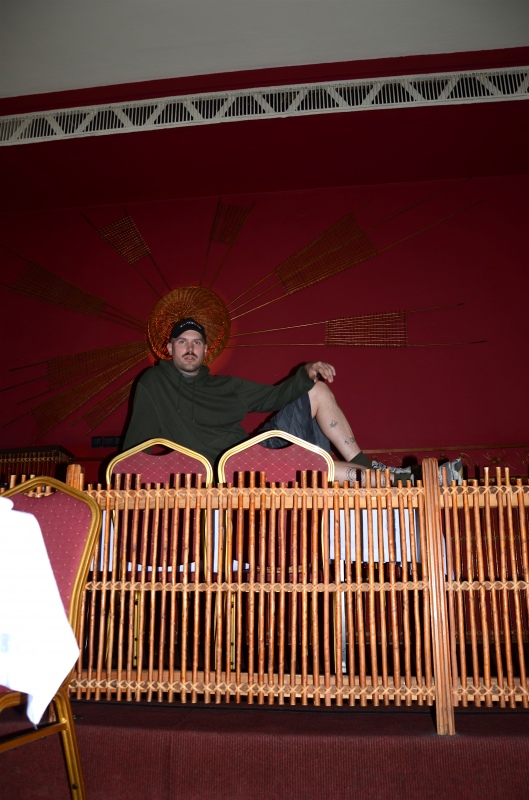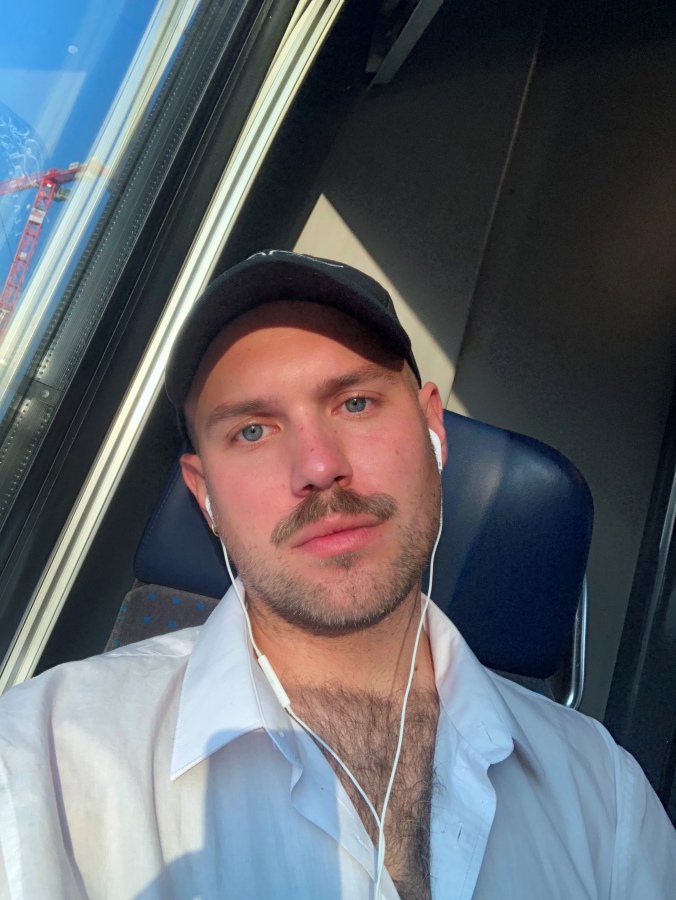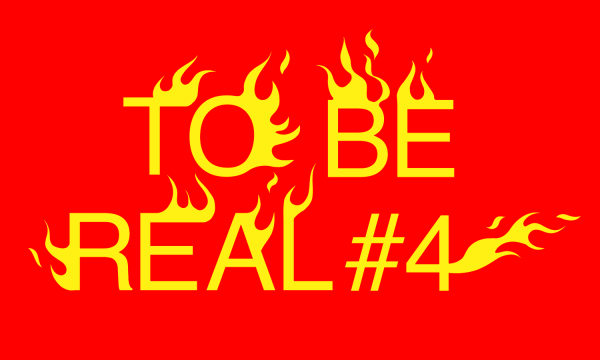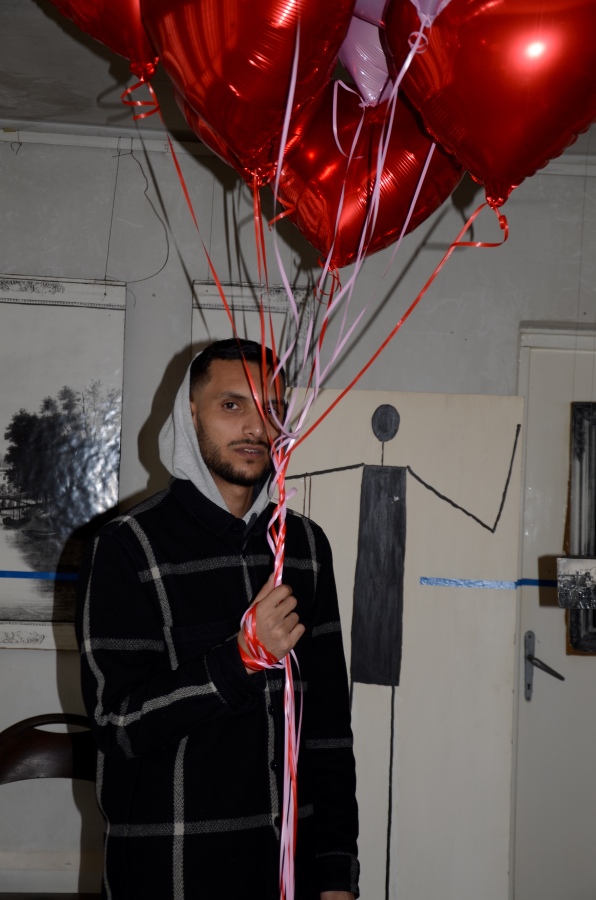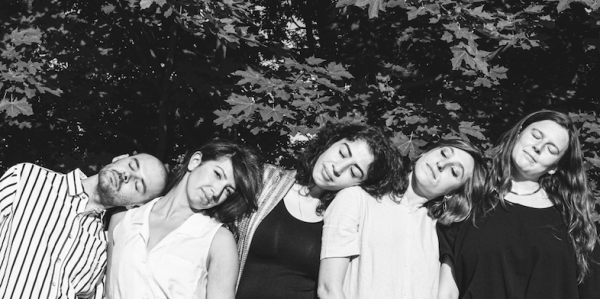Body as a weapon
Nils Amadeus Lange in conversation with Mateusz Szymanówka
-
Like many of us involved in To Be Real, you were born at the end of the 80s, so you couldn’t really go to the raves of the 90s. However, you grew up in Cologne, a place very important for German techno culture, with its Acid and later Minimal Techno. In what way has that influenced you?
- My connection to techno culture has been very strong. Cologne had some great clubs when I was a teenager. For a long time, it has been the only space in my life where I could remain anonymous, sneak into a group of people without having to explain who I am. I started going out when I was 15 and it was the first time I dared to dance in front of other people or kiss another man. Somehow clubs gave me all the tools I needed afterwards: expression through movement, experiments with gender and sexuality, a feeling of togetherness and being responsible for other people. Cologne was famous for its minimal, so maybe that’s the reason why I later looked for forms of expression that were harder, more extreme.
-
Do you still go out?
- Yes, a lot. To be honest, I find most of my performers during parties, because I am more interested in this kind of body language than movement material prepared for castings. In Zürich, where I am based right now, there are a lot of squats and underground raves, so I am heavily influenced by the music, but also the room and the lighting.
-
I saw one of your first performances – 4YEO – in Lausanne in 2013, with a former resident of the Castle – Mathias Ringgenberg – on stage. I mostly remember being immersed in this atmosphere of a hangout.
- It is funny you mention that memory, because I was recently asked about maybe re-enacting that work. I usually call this particular atmosphere “togetherness”. I don’t believe in creating content too much. For me, more important than generating material is establishing a temporary community. After all, we are going to spend several weeks together working, but also cooking, going for a swim, seeing the same movies or exhibitions. I am interested in creating “togetherness” in which everyone is reliant on everyone else. Anything can happen in a space like that, but everyone is responsible for it. This way of working has been crucial and characteristic, especially in my early work, but I still address those questions in every process. Of course, there are always moments of clashing, because a group with similar vocabulary and ethics arrives at an institution where mean curators want us to do things in a different way.
-
-
Is it also about building a community that works by different rules than what we experience in the external world?
- Definitely. Within a group I am always reflecting social structures, so I am trying to create groups where people who face exclusion in their everyday life feel strong together. It is also about looking for flat hierarchies. If I come up with solo material, it doesn’t have to mean it will be performed by me. It’s all about how to share material, practice and how to deconstruct power structures in institutions and in society. For me, from the moment the audience enters the room, it’s about two groups getting to know each other. I always hope this meeting will make the audience reflect on how they live.
-
Do you consider yourself successful at creating non-hierarchical work environments?
- It is difficult, because there comes a certain point of the group process when it would be easiest and most efficient to simply follow one person. But I always ask myself how I want to rehearse and whether it’s the right way. Collaborating with others can be messy, but I am really trying to stick to it.
-
We are talking about hangouts, but we both know that performance is a highly artificial situation and even improvisation needs preparation.
- Sometimes the audience doesn’t understand what is so special about this kind of proposal. It is not easy to create a stage situation with a high level of energy. It only works when everyone in the group is an expert in what they do.
-
Your performances very often create situations in which the body is exhausted or put in danger.
- In my life I have always had to fight for the right to be on stage, with my different kind of a body. I have been through all the various phases with my physicality: I have been fat, extremely skinny and muscled. When I started working in dance, I didn’t have a dancer’s body, I was an amateur, not flexible and not with a good sense of rhythm. However, I have proved that I can tell a story, create an illusion, change the way people think. This is why in my work I call the body a weapon; I believe that, through these extreme ways of using the body, I can destroy certain ways of thinking.
-
Do you have a particular lineage in performance art?
- I would definitely mention Bas Jan Ader, because of the way he always tells a very simple story: he sits on his rooftop on a chair and falls down, or he bikes and goes into a river, or he holds a heavy stone and it falls down on a lightbulb. It is interesting that, through watching those situations of danger, people start to think about their own lives. I always ask myself how I can arrive in a situation that is dangerous to watch.
-
You’re talking about body as a weapon, but it seems to actually be mostly about connection.
- I want to create new realities through the body. I want people to question their own behaviour, the centrality of certain concepts in their lives, just like gender for instance.
-
In your artistic practice, you have moved from the stage into other media.
- To be honest, I have always had good reasons to leave a certain field. I left theatre, because I felt I was a very good actor and it was too easy to express myself or find the vocabulary for that. The same thing happened with dance. I don’t want to recreate what I have done well already. I am always seeking to go back to being an amateur. At the moment I am mostly working on sculptures, but I have started making a movie already. I appreciate that, through this amateurism, I am utterly free to experiment. Maybe I would like to go back to theatre, but for that I need to unlearn my tools first.
